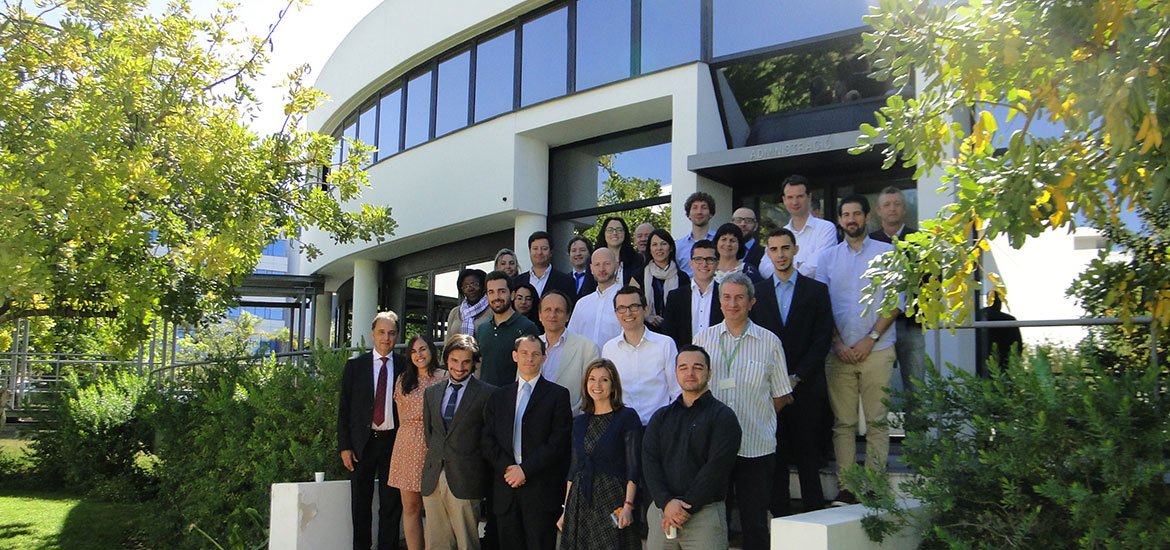JOSPEL Project
Alke' partner in EU funded research project

Alke' is industrial partner and technical coordinator of JOSPEL project supported by a consortium of 14 project partners from 9 different EU countries. Objective of this project is:
- the development of a novel energy efficient climate system for the optimization of interior temperature control management in electric vehicles through an integrated approach that combines the application of the thermoelectric Joule and Peltier effect.
Main objective of JOSPEL is the reduction of at least 50% of energy used for passenger comfort and at least 30% for component cooling in extreme conditions with reference to electric vehicles currently on the market.
JOSPEL’s main energy efficiency improvements will consist of developing a novel and innovative heating system based on the Joule effect and a cooling system based on the use of Peltier cells (from which derives the name JOS-PEL). Both of these technologies are expected to reduce the energy consumption with at least between 25-30 % each in comparison with current heaters and heat pump inverters for cooling.
Alke' as industrial partner of JOSPEL project is in charge for the full integration, testing and validation of developed technologies into its electric vehicle platforms.

The JOSPEL objectives
| Development of a novel and innovative cooling system based on the use of Joule effect. | |
| Development of a novel and innovative heating system based on the use of Peltier cells. | |
| Improvement of insulation properties of PMMA sheet | |
| Reduction of energy needed for defrosting. | |
| Reduction of EV consumption by optimizing cabin insulation. | |
| Development of model based control strategies for the operation of the battery pack including the cooling system. | |
| Reduction of EV electric consumption by full vehicle integration of communication devices and networks. | |
| Implementation of automated systems to improve energy saving. | |
| Cost reduction in the proposed heating/cooling systems compared to current systems. | |
| Weight reduction of the cars equipped with the technology involved. | |
| Optimization of functionalities and devices interconnection in a distributed cloud-based environment. | |
| Analyzing and applying the above mentioned concept to complex entities. | |
| Building a full monitorized “demo lab” with real users for the validation of the user cooler/heating feeling. |
The JOSPEL project final video:
Final Results
With the impressive project results, JOSPEL contributes to breaking down one of the major barriers for a wider market introduction of electric vehicles.
Thermoplastic panels and thermoset textiles were developed as heating elements, thereby reducing the energy consumption with at least 30% compared to existing PTC heaters. Climatic chamber tests were carried out to simulate extreme climate conditions in the car, and the thermal comfort was evaluated with sensors (ISO14505-2) and real passengers (ISO14505-3). The JOSPEL heating solutions were close to perfection, as the warm body with fresh air from the fans resulted in a thermal comfort classification of neutral to slightly warm.
In addition, JOSPEL has applied optimized thermal management to the battery and other vehicle components, and by adding eco-driving technologies, the project has achieved further energy reductions of 24%.
Last but not least, lightweight technologies and improved cabin insulation using new glazing designs shaves an additional 3% off the energy consumption.
With this holistic approach to energy management, JOSPEL has reduced the energy consumption related to passenger comfort systems with a total of 57%. Moreover, the life of the electric vehicle battery was extended with 15% thanks to its improved thermal management.
For more details on JOSPEL project see: www.jospel-project.eu
The JOSPEL project has received funding from the European Union‘s Horizon 2020 research and innovation programme under Grant Agreement n° 653851.
Responsibility for the information and views set out in this web page lies entirely with the authors.
The JOSPEL project consists of 14 project partners:


